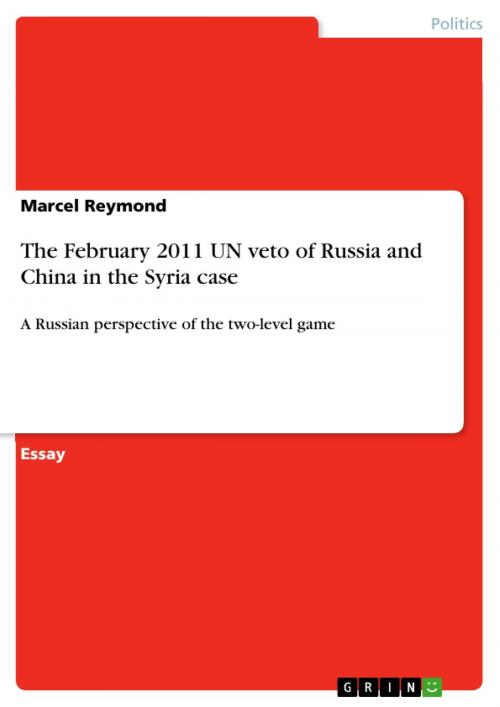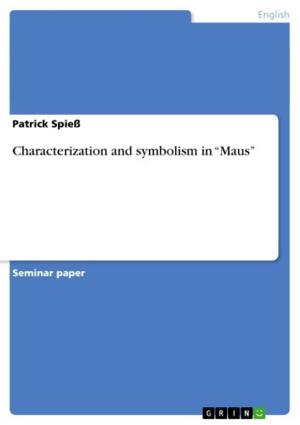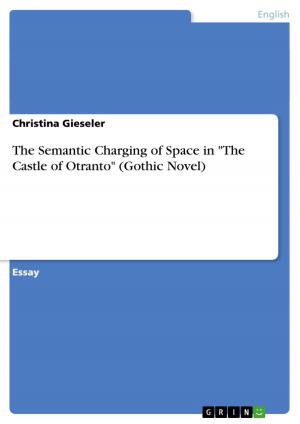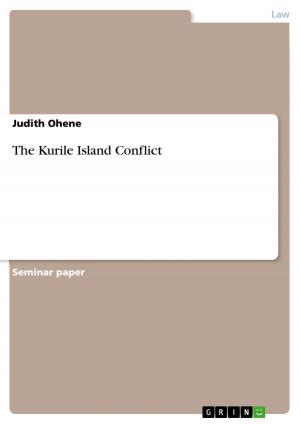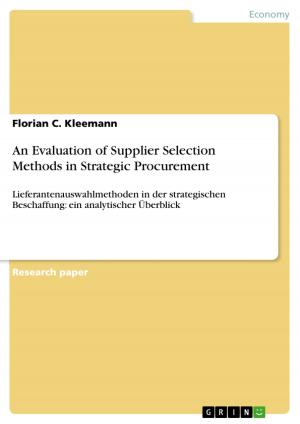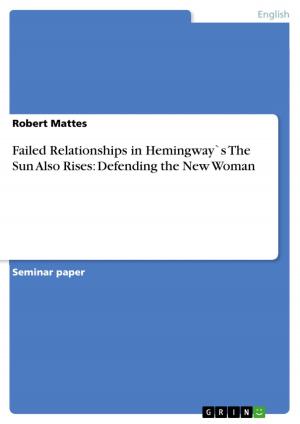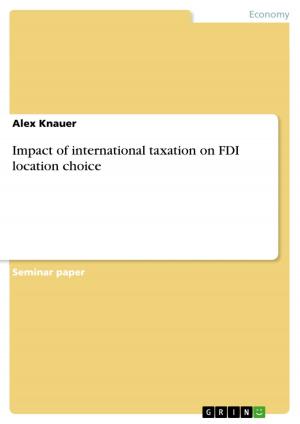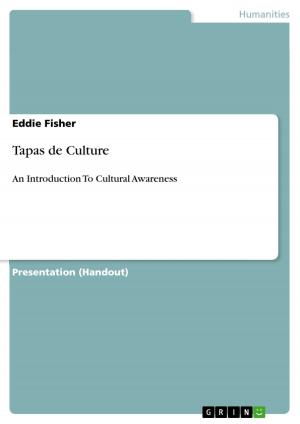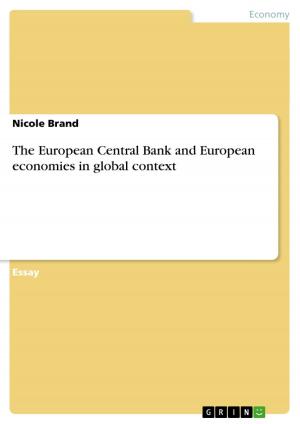The February 2011 UN veto of Russia and China in the Syria case
A Russian perspective of the two-level game
Nonfiction, Social & Cultural Studies, Political Science, International, International Relations| Author: | Marcel Reymond | ISBN: | 9783656295693 |
| Publisher: | GRIN Publishing | Publication: | October 24, 2012 |
| Imprint: | GRIN Publishing | Language: | English |
| Author: | Marcel Reymond |
| ISBN: | 9783656295693 |
| Publisher: | GRIN Publishing |
| Publication: | October 24, 2012 |
| Imprint: | GRIN Publishing |
| Language: | English |
Essay from the year 2012 in the subject Politics - International Politics - Topic: International Organisations, grade: A, Webster University (International Relations), course: INTL5570 , language: English, abstract: On February 4th 2012, Russia and China vetoed an Arab-West plan in the United Nations (UN) Security Council (SC). The plan called for Syria's President Bashar al Assad to step down. Russia, in particular, has often used the outcome of the Libyan resolution as a justification for its Syria vetoes. This paper applies the two level game theory of Robert Putnam, and the foreign policy (FP) decision-making model by Margaret G. Hermann and Charles F. Hermann. Its aim is to provide evidence to substantiate the hypothesis that domestic Russian interests were the driving factor behind the double SC vetoes and that China had echoed the move to honor its strategic partnership agreement with Russia. Firstly, the paper will briefly explain the two-level game theory as well as the foreign policy decision-making model. Secondly, will follow an analysis of the international environment (level one) which influenced the veto decision. Thirdly, an investigation of the domestic game (level two) will be carried out, using the Hermann model before drawing to a conclusion. The lack of access to detailed decision making protocols and the haziness surrounding the relevant domestic decision makers in Russia, have made it impossible to clearly identify the members of the ultimate decision making unit and the level one rationale for the Syria veto. One can assume, that in all likelihood, a single group composed of different players within the Russian elite, influenced the decision. China's exact interests or its reasons to use its veto power remain undefined. It seems to be relatively safe to claim that Russia was the driving factor behind the veto and that China followed suit. The paper concludes that Russia's national security concerns and its wish to be recognized once more as a great power, (this implies some anti- western feelings) were, in all likelihood, the important reasons behind the veto.
Essay from the year 2012 in the subject Politics - International Politics - Topic: International Organisations, grade: A, Webster University (International Relations), course: INTL5570 , language: English, abstract: On February 4th 2012, Russia and China vetoed an Arab-West plan in the United Nations (UN) Security Council (SC). The plan called for Syria's President Bashar al Assad to step down. Russia, in particular, has often used the outcome of the Libyan resolution as a justification for its Syria vetoes. This paper applies the two level game theory of Robert Putnam, and the foreign policy (FP) decision-making model by Margaret G. Hermann and Charles F. Hermann. Its aim is to provide evidence to substantiate the hypothesis that domestic Russian interests were the driving factor behind the double SC vetoes and that China had echoed the move to honor its strategic partnership agreement with Russia. Firstly, the paper will briefly explain the two-level game theory as well as the foreign policy decision-making model. Secondly, will follow an analysis of the international environment (level one) which influenced the veto decision. Thirdly, an investigation of the domestic game (level two) will be carried out, using the Hermann model before drawing to a conclusion. The lack of access to detailed decision making protocols and the haziness surrounding the relevant domestic decision makers in Russia, have made it impossible to clearly identify the members of the ultimate decision making unit and the level one rationale for the Syria veto. One can assume, that in all likelihood, a single group composed of different players within the Russian elite, influenced the decision. China's exact interests or its reasons to use its veto power remain undefined. It seems to be relatively safe to claim that Russia was the driving factor behind the veto and that China followed suit. The paper concludes that Russia's national security concerns and its wish to be recognized once more as a great power, (this implies some anti- western feelings) were, in all likelihood, the important reasons behind the veto.
